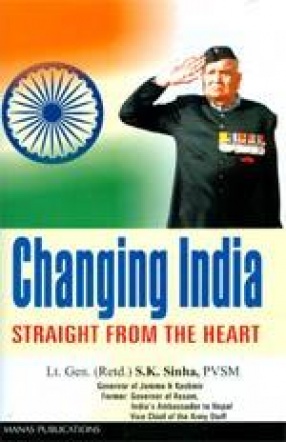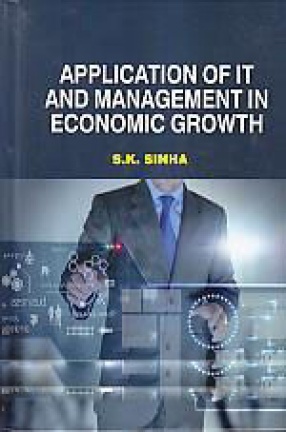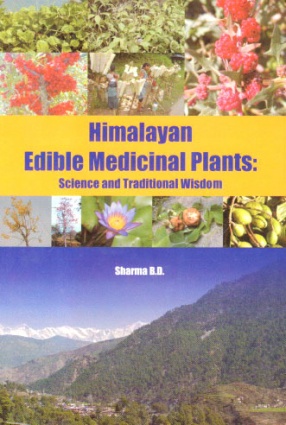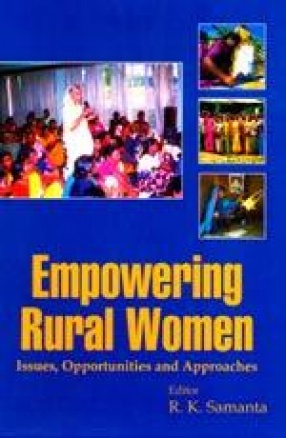Twentieth Century witnessed revolutionary changes in all spheres of human life. More changes took place in that century than in the previous few millennia. Man moved from the age of horse and bullock cart to space travel. Moon no longer remained only a poetic fantasy, it had become a tourist destination. Time and space got conquered, as we entered the age of instant communication. Half way through the century, India emerged from being a backward imperial dependency to a modern sovereign democratic republic. By the end of the Century, the country started showing signs of becoming a global economic power. A remarkable feature has been that the Indian Army has always remained an instrument for imposing the Nation’s will, and not for imposing the Nation’s will, and not for imposing its will on the Nation. No military or civil dictator – a Cromwell, Napoleon, Mussolini or Hitler-ever took over the reins of power in our country, much less any military coup which has been so endemic in the Third World. The author has lived most of his life in the Twentieth Century with bulk of the period serving in the Indian Army. Without attempting an autobiography or writing a history of events as such, he has recounted his personal reminiscences of the changes that he witnessed in society, administration and tenor of life. These reminiscences give a glimpse of the changing times which have now become part of history. They provide a personal and human flavour to them. These reminiscences, largely of Army milieu, are good material for relaxed and light reading.
Changing India: Straight from the Heart
by S.K. Sinha
$31.50
$35.00
In stock
Free & Quick Delivery Worldwide
All orders amounting to US$ 50 or more qualify for Free Delivery Worldwide. For orders less than US$ 50, we offer Standard Delivery at $14 per book.
ABOUT THE AUTHOR S.K. Sinha
Lt. Gen (Retd.) S.K. Sinha, PVSM, was born in 1926 and graduated from Patna University i 1943. He joined the Army soon thereafter and was commissioned in the JAT Regiment. He saw combat during the Second World War in Burma (Myanmar) and Indonesia. After Independence, he was transferred to 5 Gorkha Rifles (FF). He was associated with the Kashmir War from day one, 27th October 1947, and was intimately connected with it throughout the first Indo-Pak War of 1947-48. He was the Secretary of the Indian delegation to the United Nations Commission for India and Pakistan (UNCIP) in 1949 to delineate the Cease-Fire Line in Kashmir. During his long distinguished career in the Army, General Sinha held all levels of command from a Platoon to a Field Army. He served as Instructor both at the War College in Mhow and at Staff College in Wellington. He held key staff appointments in field formations besides serving in every rank from Capt. to Lt. Gen at Army Headquarters. In 1973, he was decorated with the highest military award for distinguished services, Param Vishisht Seva Medal (PVSM). His last appointment in the Army was Vice Chief of the Army Staff, when he quit the Service in 1983. Appointed as India's Ambassador to Nepal when Indo-Nepal relations had hit their nadir, General Sinha Played a key role in raising Indo-Nepal relations to a high level of cordiality and also in the restoration of democracy in that country. The Prime Minister of Nepal Wrote, "General Sinha was as much India's Ambassador to Nepal as Nepal's Ambassador to India". In 1997, he was appointed Governor of Assam when insurgency was at its peak in that State. He succeeded in isolating the militants and bringing the people of Assam. The people and the Press referred to him as "Our Man in Raj Bhawan", 'a true son of the soil of Assam, totally Assamese in his outlook". He took over as Governor of Jammu and Kashmir in 2003 where he still continues to serve. During the last three years, there has been a marked improvement in the security scenario in that State.
reviews
0 in total
Review by Anonymous
Be the first to review “Changing India: Straight from the Heart” Cancel reply
You must be logged in to post a review.
Bibliographic information
Title
Changing India: Straight from the Heart
Author
Edition
1st ed.
Publisher
Manas Publications, 2007
ISBN
8170493315
Length
220p., Plates; Index; 23cm.
Subjects
more by S.K. Sinha see more
similar bookssee more
Himalayan Edible Medicinal Plants: Science and Traditional Wisdom
The book has four chapters ...
$225.00
$250.00
Empowering Rural Women: Issues, Opportunities and Approaches
In most of the developing ...
$34.20
$38.00








There are no reviews yet.